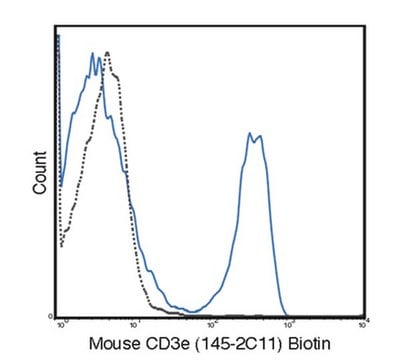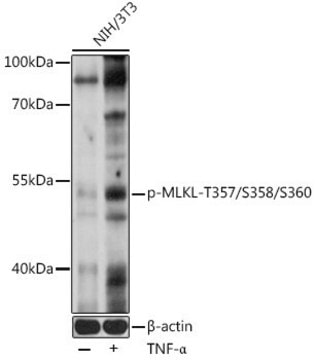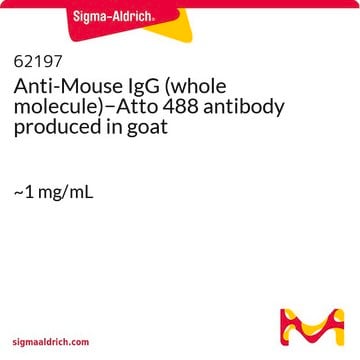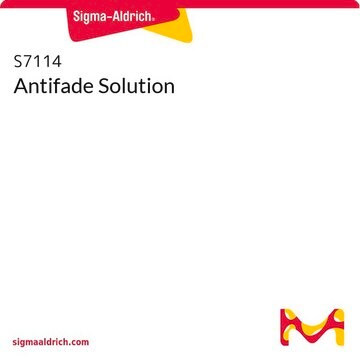SAB4600056
Anti-Mouse IgG (H+L), highly cross-adsorbed, CF™ 488A antibody produced in rabbit
~2 mg/mL, affinity isolated antibody
About This Item
Recommended Products
biological source
rabbit
Quality Level
conjugate
CF™ 488A conjugate
antibody form
affinity isolated antibody
antibody product type
secondary antibodies
clone
polyclonal
form
buffered aqueous solution
species reactivity
mouse
concentration
~2 mg/mL
technique(s)
flow cytometry: 1-10 μg/mL
immunocytochemistry: suitable
immunohistochemistry: suitable
indirect immunofluorescence: 1-10 μg/mL
fluorescence
λex 490 nm; λem 515 nm
shipped in
dry ice
storage temp.
−20°C
target post-translational modification
unmodified
Specificity
Immunogen
Features and Benefits
Physical form
Preparation Note
Legal Information
Disclaimer
Not finding the right product?
Try our Product Selector Tool.
Storage Class Code
10 - Combustible liquids
WGK
WGK 2
Flash Point(F)
Not applicable
Flash Point(C)
Not applicable
Certificates of Analysis (COA)
Search for Certificates of Analysis (COA) by entering the products Lot/Batch Number. Lot and Batch Numbers can be found on a product’s label following the words ‘Lot’ or ‘Batch’.
Already Own This Product?
Find documentation for the products that you have recently purchased in the Document Library.
Our team of scientists has experience in all areas of research including Life Science, Material Science, Chemical Synthesis, Chromatography, Analytical and many others.
Contact Technical Service




